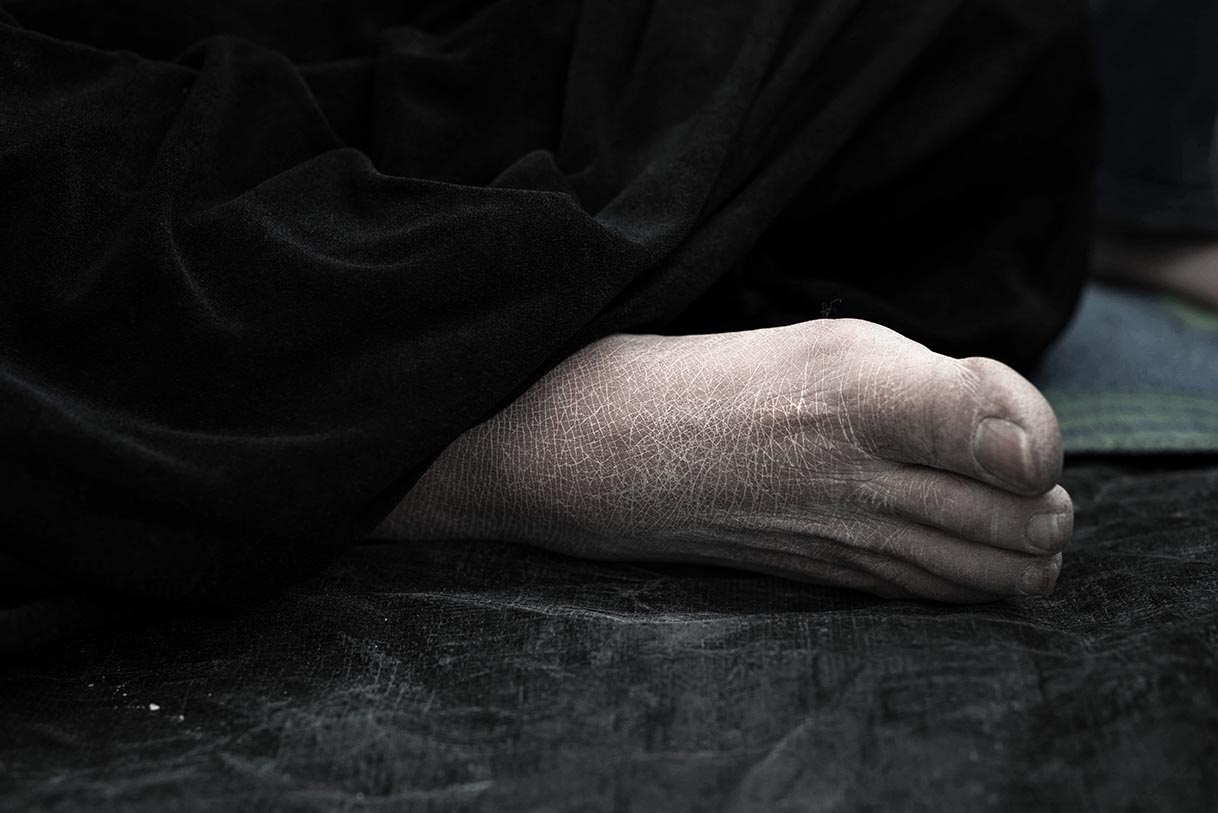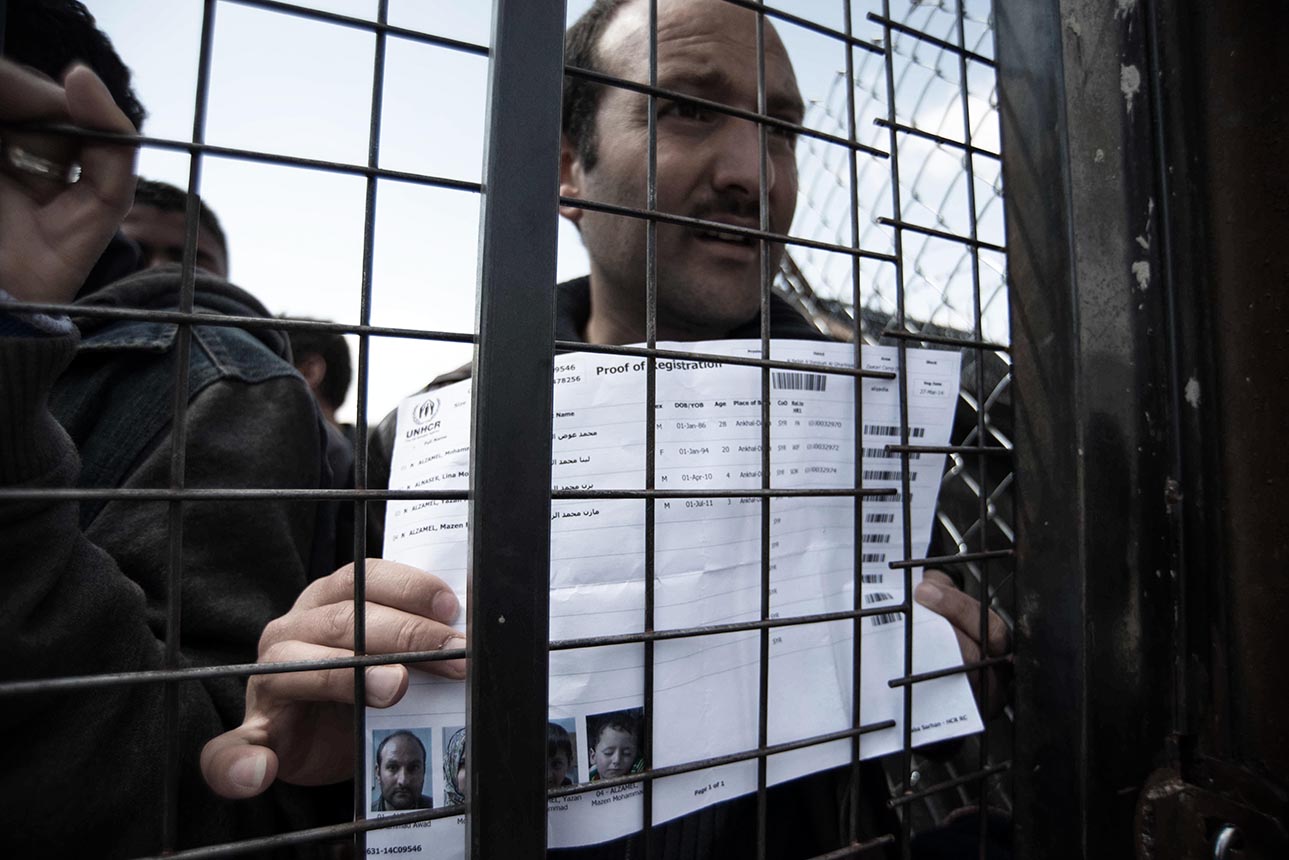













Z as Zatari Camp
Hopelessness from Syria
I met three Syrian men at the entrance of the area destined for the control permissions. They were leaning against a wall and waited for their registration to the camp. They looked like three clones; so similar to each other in appearance, even their eyes were somehow identical.
All three with the same expression, an expression of absence and silence; of those who are lost, do not quite know ‘how’, ‘where’ and ‘when’.
Above all, they certainly don’t know ‘why’.
The spring sunshine gives a different feel to the Zaatari refugee camp. The streets are recovering after a cold winter and still the temperature is not that hot as it is in the summer time, which is fast approaching. Spring brings hope, rebirth, and new expectations, even for Syrian refugees massacred by three years of war.
Zaatari is located 10km from the city of Masfraq, Jordan, right near the Syrian border. UNHCR has 106,000 people hosted in the camp, which is divided into twelve districts, with schools, hospitals, centres for women, food distribution centres, play areas and shops. The main street at the entrance is called the ‘Champs-Elysées’, named after the French hospital when it became operational. A long street where you can find anything; fruits, vegetables, perfumes and even wedding dresses for rent. Since the beginning of the Syrian revolution, which took place in March of 2011, the exodus has been slow but steady. The influx of Syrians fleeing their homes therefore continues to pour out, mostly into the states contiguous to the scene of the tragedy, which, haphazardly, keep their borders open. Lebanon, Jordan, Turkey and, to a lesser extent, Iraq and Egypt. Two million refugees have fled within the last three years. A torn country and its torn inhabitants. A war that shows no signs of ending, polluted by terrorist cells of different origins, from the religious wars that have nothing to do with the popular revolution that was just asking for reforms and dignity; nipped in the bud by a ferociously repressive regime. What the Syrians know is that they cannot wait until the end of the war. Those who have resisted and remained in the country until now have done so because they had this vain illusion that it would end quickly. Today, however, more and more refugees are aware that there won’t be a solution in the short-term.
"There is no future in Syria. In Syria you die, and that's it. At the hands of the regime, religious extremists. From bombs, chemical weapons, machine-gunned or stabbed. And finally, from starvation. "
Everyone passes through the camp, for short or long periods, and many leave it immediately. The stay inside depends on the financial/economic situation of each family : those who have a small amount of money are able to rent homes in neighbouring towns, while all the others are destined to remain there for long periods.
Mohamed, 22, is from Damascus. His father and brother were killed by a bomb barrel. When he was telling me what happened to his family, I saw no trace of despair, but a terrible resignation to life.
" I have been living in a tent with my wife for the last 9 months. I've already given up the thought of going back to Syria. Right now, I would like to have my little business here, inside the camp, selling bicycles for example. But what is really important now is to get the caravan as soon as possible."
The ‘war of the prefabricated’.
The "Caravans" are nothing more than the object sought after by all refugees, from the youngest to the oldest. Caravans are referred to as mobile homes. Everyone in tents is complaining about not having a prefabricated. Those who are living in the prefabs are privileged. Many of those who arrived two years ago had this “great fortune”. Khaled Soliman is one of these. A seller of roast chicken, 37, Khaled arrived in Zaatari in 2012. He says:
" On the 8th of August at exactly four- ten in the morning " because certain things can not be forgotten, he points out. Khaled comes from D’aara, a city near the Jordanian border and he’s a lucky one, for several reasons : he was able to bring his entire family into the area, including his mother and aunt. He has a prefab since about two months ago, after eight months spent in a tent. He managed, in one year, to build a small space where he sells roast chicken and burgers. He has seven children and all of them are going to school inside the camp. His cousin Ragab, 37, hasn’t had the same luck. He arrived at the camp having lost a leg, a finger and having lost a brother as he fought against the regime in the Free Army, unfortunately killed during a bombing raid.
"I do not even remember what it means to live a normal life. Three years seems like a lifetime when lived in this way. One less leg is the lesser of two evils. If I had not lost it, I’d be in Syria, fighting to the end of my days ".
Since the conflict began in 2011, and especially since 2012, the flow of refugees pouring into neighbouring countries has intensified in quantity and speed. Within 18 months, the number of Syrians in the exodus has increased from 40,000 in March 2012 to 2,000,000 counted in September 2013. To these we add all those still waiting to be recorded and 4.5 million internally displaced persons. Between 150-200 people are arriving into the camp every day and it is in this river of people that, yesterday, came the young Amnah. Sitting on a cot, in the limbo associated with new arrivals at the camp, eagerly waiting the assignment of tents, blankets and rugs to start her new life in Zaatari. She is 20 and holds a little girl of two months. She looks at me and says that they had to wait for two days at the Syrian border, without food and water.
" I was desperate, not for me but for my daughter. I asked a soldier to give me a bit of water and four hours later he made her drink from his glass. I hope my husband reaches us soon. I am so happy to be here, safe at last ".
The invisible brides.
Asmae is one of the 53,000 women in the camp, a bashful and important presence. They represent more than half of the population. Many have lost their husbands, brothers, sons etc. Many adolescents are of marriageable age. Considering the fact that families are desperate, it is no surprise that an underground, ‘invisible’, market for brides is becoming an issue in the camp. Many men decide to buy their third or fourth wife amongst Syrian refugees because they are beautiful and very young. And, more importantly, they are cheap. By selling them, families are hoping to assure them a better future, far away from war, poverty, deprivation and the hardships of the camp. Most of the time these girls grudgingly accept their fate and end their days under the will of a few wealthy Arabs who have grown bored with their previous wives.
We entered the fourth year of the conflict on the 14th of March that has no end in sight and that is creating consequences that will last for several decades. Over 140,000 victims, more than one million children affected by conflict-related trauma, an entire generation deficit in terms of education and health care, the economy of an entire country literally halved in terms of production and employment, this community of refugees is becoming one of the biggest in the world, watching what has become of their own land and who do not want to return to it anymore. In these years, Zaatari has become the fourth largest city in Jordan. What I bring back from my visit to Zaatari is confusion, blinding sun, sand storms, joy, resignation, anger and ingenuity to survive. What I bring from Zaatari is the heart of the Syrians, lost in an endless war.
[b]https://player.vimeo.com/video/96848909



